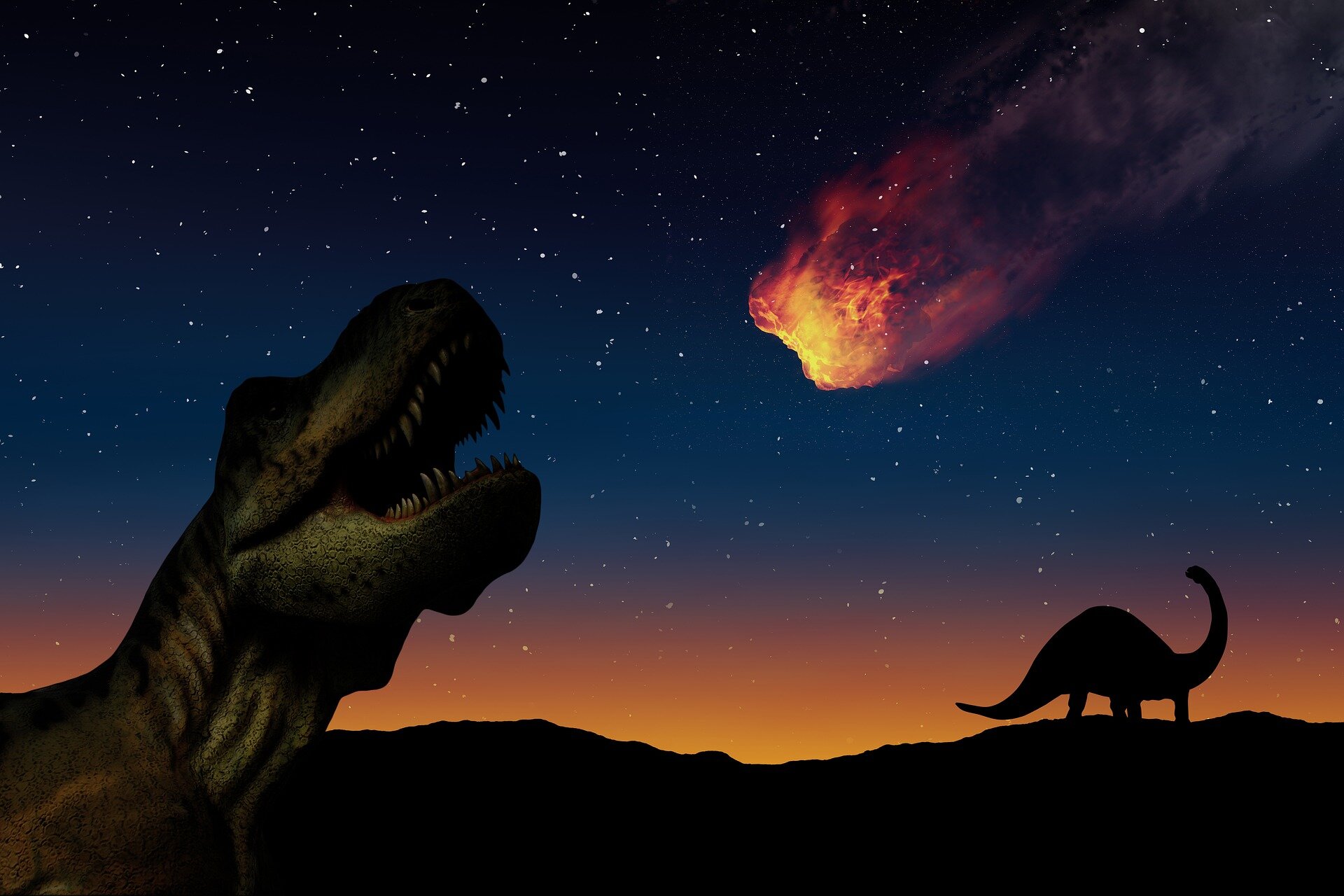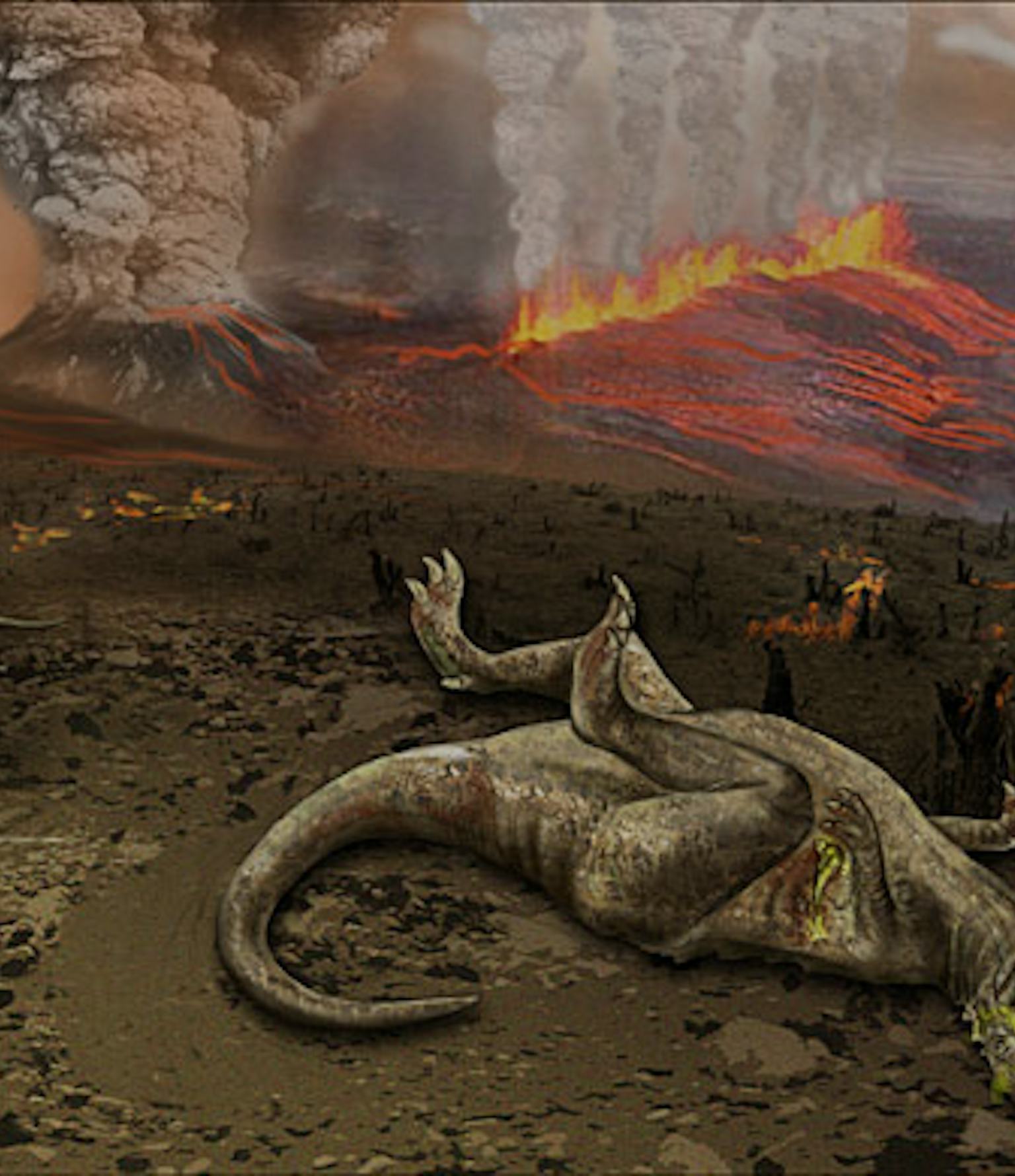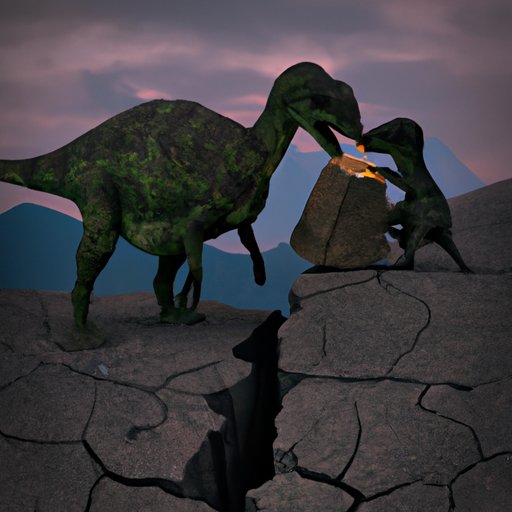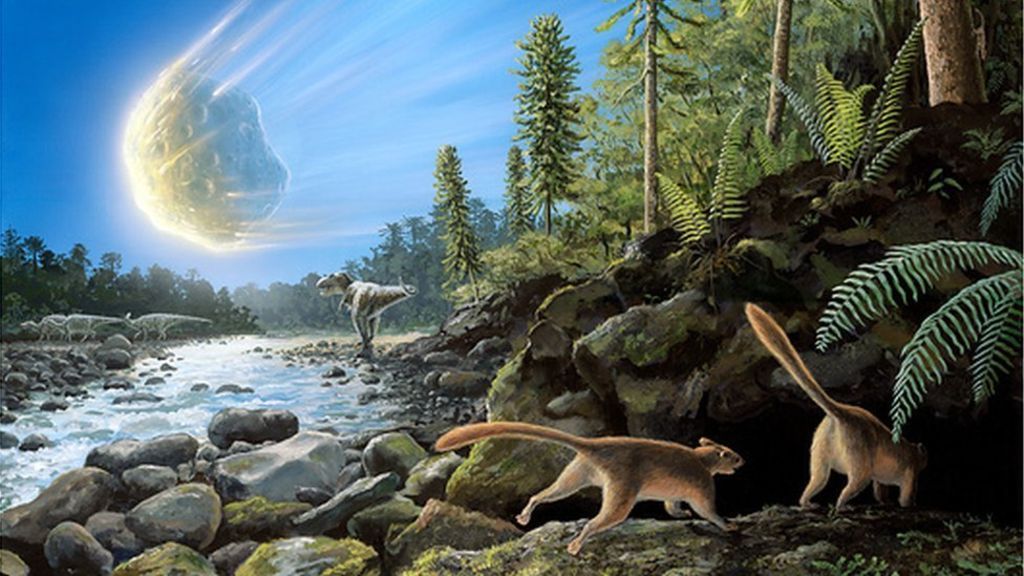Dinosaurs have long captured our imagination, from their reign over Earth millions of years ago to their mysterious extinction. But what really happened during that pivotal moment in our planet's history? The extinction of dinosaurs is not just a tale of a fiery cataclysm or ancient climate shifts; it encompasses a complex interplay of factors that led to their demise. Documentaries exploring this subject bring these enigmatic creatures and their extinction to life, presenting not only scientific evidence but also bringing out the emotional weight of their story. In this journey, we’ll uncover the science, the drama, and the mysteries that surround the dinosaurs’ final days.
Theories Behind Dinosaur Extinction

For decades, scientists and researchers have debated the causes of the mass extinction event that led to the demise of dinosaurs. While several theories have been proposed, two stand out as the most widely accepted: the asteroid impact theory and the volcanic activity hypothesis. Each theory offers unique insights into the environmental changes that could have wiped out these magnificent creatures.
Asteroid Impact Theory
One of the most popular theories is the asteroid impact theory. According to this hypothesis:
- An asteroid approximately 10 kilometers wide struck the Earth around 66 million years ago.
- This impact created the Chicxulub crater in modern-day Mexico.
- The collision released immense energy, resulting in massive fires, tsunamis, and a "nuclear winter" effect due to dust and debris blocking sunlight.
These catastrophic events led to a dramatic drop in temperature and disrupted ecosystems worldwide, making it incredibly difficult for dinosaurs to survive.
Volcanic Activity Hypothesis
Another significant theory revolves around volcanic activity, particularly the Deccan Traps in present-day India. Here's how this theory unfolds:
- Massive volcanic eruptions released large amounts of carbon dioxide and sulfur dioxide into the atmosphere.
- This caused acid rain and contributed to climatic shifts, leading to colder temperatures.
- The resulting environmental changes severely impacted vegetation, which was crucial for herbivorous dinosaurs and, consequently, the entire food chain.
Both theories highlight the complex interplay of events that could lead to an extinction event, but they’re not mutually exclusive; many scientists suggest that a combination of both asteroid impact and volcanic activity contributed to the dinosaurs' fate.
Conclusion
Through various documentaries, we can explore these theories in depth, supported by stunning visuals and expert interviews, helping us piece together the story of dinosaurs and their extinction.
Also Read This: Amazon Integration: Selling Alibaba Products on Amazon
Overview of the Documentary

When it comes to exploring the captivating narrative of dinosaurs and their extinction, the documentary "The Last Dinosaurs" takes center stage. This insightful film invites viewers to journey back in time, providing a comprehensive overview of the various periods of the Mesozoic Era—when dinosaurs roamed the Earth—and the cataclysmic events that led to their dramatic demise.
The documentary uniquely intertwines high-quality computer-generated imagery (CGI) with authentic fossil evidence, which helps to recreate the lush landscapes these formidable creatures once inhabited. Narrated by paleontologists and scientists, the film effectively distills complex scientific concepts into a digestible format, ensuring that both enthusiasts and casual viewers can grasp the intricacies of dinosaur life.
Throughout the documentary, engaging visuals capture the grandeur of these prehistoric giants, offering a glimpse of their diverse species, habitats, and behaviors. More than just a tale of extinction, the film delves into the very ecology of the time, painting a picture of a dynamic ecosystem thriving in competition, adaptation, and survival. By highlighting the context—both biological and environmental—the narrative becomes not just about "what happened," but "why it mattered."
As the documentary rolls out its narrative, it invites viewers to ponder profound questions and challenges long-standing theories about the dinosaurs' demise. Ultimately, it serves as a robust foundation for anyone fascinated by our planet's history, drawing connections between the past and how it informs our present-day understanding of extinction and survival.
Also Read This: Watching YouTube on a Kindle Is It Possible and How to Set It Up
Key Highlights from the Documentary

One of the standout features of "The Last Dinosaurs" lies in its series of key highlights that capture the essence of the dinosaurs' world and their tragic end. Here are some of the most noteworthy aspects:
- Visual Reconstruction: The use of cutting-edge CGI allows viewers to see lifelike dinosaur recreations in authentic environments, making the prehistoric world come alive.
- Expert Insights: Commentary from leading paleontologists provides valuable perspectives, shedding light on dinosaur behaviors, their roles in the ecosystem, and the factors contributing to their extinction.
- Impact of the Meteor: The documentary explores the hypothesis of a massive meteor impact as a trigger for the extinction, visually illustrating how such an event could have decimated environments rapidly.
- Climate Change Factors: It doesn’t just stop at one cause; the film delves into various climate changes over millions of years that may have prepped the Earth for a mass extinction event.
- Fossil Discoveries: The documentary presents exciting fossil discoveries that have shaped our understanding of dinosaur life and death, turning dry science into gripping narratives.
All these elements are woven seamlessly into the fabric of the documentary, creating a rich tapestry that engages both the heart and the mind. It's not just a documentary; it's a thought-provoking exploration that challenges audiences to reflect on the delicate balance of life and extinction, resonating with our own ecological concerns today.
Also Read This: Exploring the Largest Tech Hubs in the USA and Their Influence on the Economy
Importance of Studying Dinosaur Extinction

Understanding the extinction of dinosaurs isn’t just about satisfying our curiosity about these fascinating creatures; it's crucial for a variety of scientific and ecological reasons. Here are some key points to consider:
- Insights into Evolution: Studying how dinosaurs went extinct gives us clues about evolutionary processes. It allows scientists to understand how life on Earth has changed over time and how species adapt—or fail to adapt—to changing environments.
- Ecosystem Dynamics: Dinosaurs were a significant part of Earth's ecosystems for millions of years. Learning about their extinction helps us comprehend the dynamics of ecosystems, including how different species interact and the long-term effects of losing such major players.
- Climate Change Lessons: The extinction event that wiped out the dinosaurs was likely influenced by dramatic climate changes. By studying this, we can gain insights into how current climate change could affect biodiversity and the survival of other species.
- Conservation Strategies: The past can offer valuable lessons for modern conservation efforts. By understanding what led to the dinosaurs' demise, scientists can develop strategies to protect today’s endangered species.
- Public Interest and Education: Dinosaurs capture the imagination of people of all ages. Documentaries and studies about their extinction not only educate but also inspire interest in science and natural history.
In conclusion, the importance of studying dinosaur extinction extends far beyond these ancient monsters. It interlinks with present-day concerns, offering a mirror through which we can understand our world better.
Also Read This: Learn How to Download Movies from IMDB Free with This Smooth Way
Where to Watch the Documentary
Now that you’re intrigued by the subject, you might be wondering where you can catch a documentary that dives deep into the extinction of dinosaurs. Fear not; there are several platforms where you can find engaging content about this topic:
- Streaming Services: Platforms like Netflix, Amazon Prime Video, and Disney+ frequently feature high-quality documentaries. Simply search for “dinosaur extinction” and explore the options available.
- Dedicated Nature and Science Channels: Channels like National Geographic, BBC Earth, and Discovery often produce breathtaking documentaries focusing on dinosaurs and their extinction. Check their websites or on-demand services for specific episodes.
- YouTube: Believe it or not, there are tons of documentaries uploaded on YouTube! From detailed analyses by experts to animated series that make the subject more enjoyable to watch, you can find a treasure trove of content.
- Documentary DVD Collections: If you prefer physical media, consider purchasing or renting DVDs from popular educational series dedicated to dinosaurs and their extinction.
- Local Libraries: Don’t forget about your local library! Many libraries stock a wide range of documentaries, including those about dinosaurs. You might just find a gem among the shelves!
So whether you're in the mood for a binge-watch or just want to learn a little something new, the options to watch documentaries on dinosaur extinction are plentiful. Grab your popcorn and enjoy the journey back in time!
Exploring the Extinction of Dinosaurs Through Documentary
The extinction of dinosaurs remains one of the most compelling mysteries in Earth's history, captivating scientists and enthusiasts alike. Documentaries dedicated to this subject offer a surreal journey back in time, using advanced CGI and fossil evidence to recreate the lush landscapes these giants once inhabited. Through meticulously researched narratives, viewers can explore the myriad theories surrounding their demise, ranging from catastrophic asteroid impacts to prolonged volcanic activity.
There are several key themes often highlighted in these documentaries:
- Asteroid Impact: The leading hypothesis suggests that a massive asteroid struck the Yucatán Peninsula around 66 million years ago, resulting in widespread environmental changes.
- Volcanic Activity: Some theories propose that extensive volcanic eruptions in the Deccan Traps contributed to climatic shifts detrimental to dinosaur survival.
- Climate Changes: The gradual cooling of the Earth might have led to habitat loss, impacting the food chain and the survival of various species.
- Other Factors: Compounding factors such as sea-level changes and competition among species also play crucial roles in the extinction narrative.
Documentaries like "Walking with Dinosaurs," "The Day the Dinosaurs Died," and "The Rise and Fall of the Dinosaurs" provide immersive experiences through visuals and scientific explanations. They feature interviews with paleontologists and utilize visual effects to depict life before extinction, enhancing the viewer's understanding of this profound event in history.
Ultimately, these documentaries not only illuminate the past but invite reflections on the fragility of life on Earth. As we learn more about past extinctions, we must also consider the current state of biodiversity and the need for conservation in today's world.
Conclusion and Final Thoughts: The investigation into dinosaur extinction through documentary provides not just a window into a lost world but a crucial understanding of ecological balance, reminding us of our responsibility to protect our planet and its inhabitants.
 admin
admin








